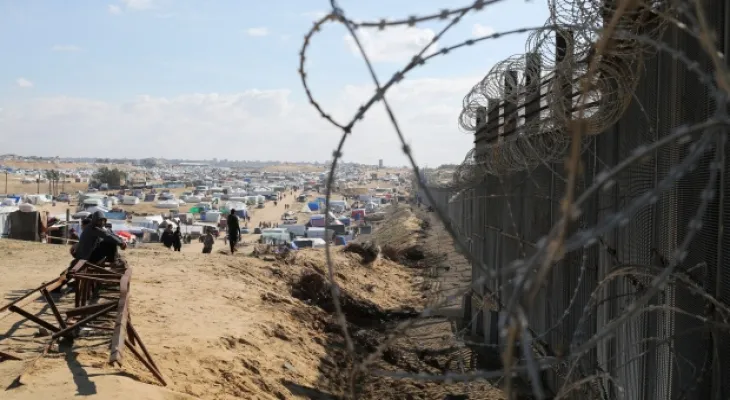Search here
Newspaper
Search here

Arab Canada News
News

Published: March 20, 2024
Despite international warnings, Israel remains determined to launch a ground attack against Hamas in the city of Rafah, located in the far south of the Gaza Strip. This plan raises global concerns due to the potential harm to hundreds of thousands of civilians sheltering there.
Israeli Prime Minister Benjamin Netanyahu said that Israel cannot achieve its goal of achieving a "complete victory" over Hamas without dealing with Rafah.
Israel has approved military plans for its attack, but with 1.4 million Palestinians crowded in the town, Israel's allies, including the United States, have called for greater care for civilians during the anticipated incursion.
Most of these Palestinians have been displaced due to fighting in other parts of Gaza and live in overcrowded camps or are squeezed into residential apartments.
Netanyahu will send a delegation to Washington to present the plans to the administration.
Why is Rafah so dangerous?
Since Israel declared war in response to the deadly attack launched by Hamas across the border on October 7, Netanyahu said the main goal is to destroy the Islamic group's military capabilities.
Israel says Rafah is Hamas’s last major stronghold in the Gaza Strip, after operations elsewhere dismantled 18 of 24 brigades belonging to the group, according to the military.
Israel says Hamas has four brigades in Rafah and it must send ground troops to topple them. Some senior militants are also likely hiding in the town.
Why is there so much opposition to Israel’s plan?
The United States has urged Israel not to carry out the operation without a "credible" plan to evacuate civilians. Egypt, Israel’s strategic partner, said any move to push Palestinians into Egypt would threaten the four-decade-old peace agreement with Israel.
In a phone call with Netanyahu this week, U.S. President Joe Biden asked the Israeli leader not to carry out the Rafah operation, according to White House National Security Advisor Jake Sullivan. He said the U.S. is seeking an "alternative approach" that does not involve a ground invasion.
Israel does not appear close to sending troops
Netanyahu said he would send a delegation to Washington "out of respect" for Biden. But he said in a statement Wednesday that he told Biden that Israel “cannot complete victory” without entering Rafah.
Despite the tough talk, Israel does not seem close to sending troops into Rafah. This may be related to ongoing attempts to mediate a temporary ceasefire. Qatari mediators say those talks will be set back by a Rafah invasion.
There are also logistical concerns.
The Israeli army said it plans to direct civilians to "humanitarian islands" in central Gaza before the planned attack. Netanyahu said today that evacuation plans have not yet been approved.
Comments